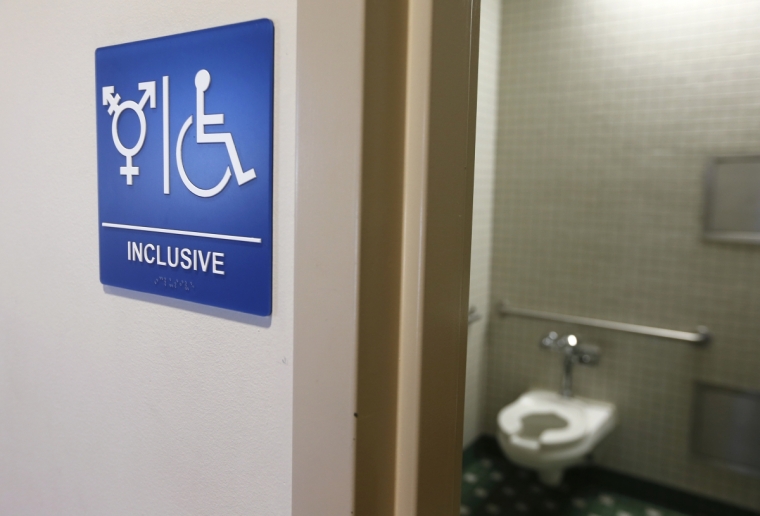Churches sue state of Massachusetts over transgender bathroom access law

BOSTON (Christian Examiner) – Four churches in Massachusetts have filed a federal lawsuit against the state's new transgender bathroom access law because it forces the churches to use their facilities in a way that violates "their core religious beliefs," ABC News has reported.
Under new rules adopted by the Massachusetts Commission against Discrimination (MCAD) and the Massachusetts Attorney General, the churches would be required to, first, edit sermons by removing biblical content on human sexuality, marriage, and other topics related to homosexuality when members of the general public are present.
They would also be required to open bathroom facilities to transgenders if a church facility is used for a secular purpose, such as when the church serves as a polling place or there is a special event, such as a spaghetti supper. The problem is that the state apparently believes it has the right to determine when an event is religious or not religious.
The government shouldn't encroach on the internal, religious practices of a church. Neither the commission nor the attorney general has the constitutional authority to dictate how any church uses its facility or what public statements a church can make concerning a deeply held religious belief, such as human sexuality.
The MCAD, the lawsuit claims, "expressly stated that it would not provide an objective standard, but would review a charge 'involving religious institutions or religious exemptions ... on a case-bycase-basis.' Thus, a pastor, other church leader, or a court must guess as to which of the church's activities subject it to the severe sanctions of the Act, which include fines of $50,000 per violation, up to 365 days in jail, and attorneys' fees.'"
The four churches – Horizon Christian Fellowship, Swansea Abundant Life Assembly of God, House of Destiny Ministries, and Faith Christian Fellowship of Haverhill – all claim in the suit, filed by Alliance Defending Freedom, that the state has failed to understand what a church does.
It invites the public to all of its events "for communal worship, other formal religious services, Sunday school classes, Bible studies, youth-oriented activities," and other reasons, the lawsuit claimed.
Worse, the churches claimed, the act really only targets conservative churches and ministers who still believe what Scripture teachings about human sexuality, complementarianism (the belief that women and men were made to complement one another), and the immutability of biological sex.
"The government shouldn't encroach on the internal, religious practices of a church," ADF's Senior Counsel Steve O'Ban said. "Neither the commission nor the attorney general has the constitutional authority to dictate how any church uses its facility or what public statements a church can make concerning a deeply held religious belief, such as human sexuality."
That is why the suit claims the prohibitions against churches speaking on the issues forces pastors to "self-censor" and "chill" their own speech.
The state's attorney general did not comment on the suit other than to say it was being reviewed. A spokeswoman, however, said the AG's office was "pleased that we finally have a law in place that protects transgender people from discrimination in public places. This law is about civil rights and is critical for people who were without full protection and equality under the law for too long," Jillian Fennimore, the AG's press secretary, told ABC News.